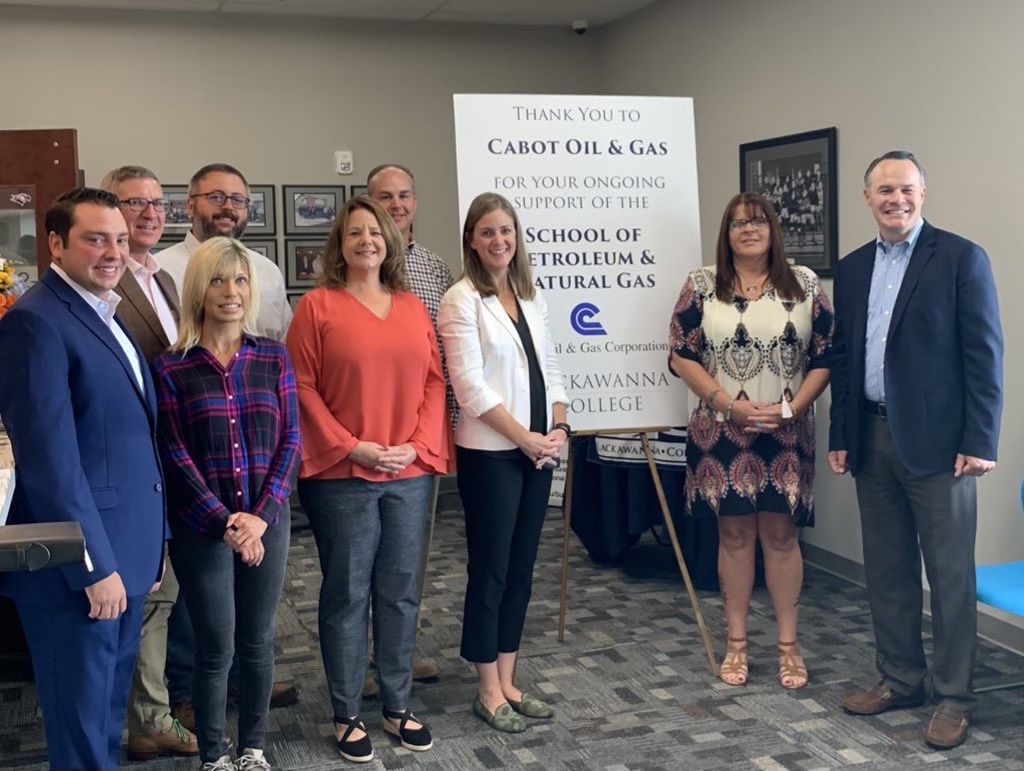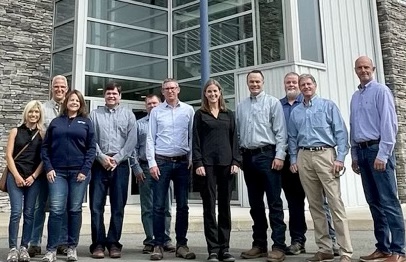API President Characterizes Pennsylvania’s Role in Energy Production
The economy of northeastern Pennsylvania continues to be strong, especially in and around the counties where natural gas production has become the mainstay. And Mike Sommers, president and CEO of the American Petroleum Institute (API), saw that first hand when he visited the area in August. On Sept. 15, he shared that experience with viewers of our most recent Think About Energy webinar: What We Have Built and What is at Stake.

Cabot was one of several companies to host Mike’s visit and to help him gain a deeper understanding of how energy development has impacted the state. We couldn’t help being impressed by a short video produced by API that kicked off the webinar, as it depicted several of our work sites and even the new Lackawanna College School of Petroleum and Natural Gas in Tunkhannock.
In addition to stopping by the School just prior to their coincidental grand opening, Mike saw active drilling sites, compressors stations and Williams’ headquarters, and the Invenergy Plant in Jessup, which is supplying gas-powered electricity to more than a million homes. As Mike put it, he was able to see natural gas move from extraction and processing to “getting the energy to where it needs to be.” Mike cited the 500,000 direct and indirect induced gas jobs in Pennsylvania and the fact that we are producing seven percent of the world’s natural gas. “It is a success story that would not have occurred if not for the ingenuity of those in the natural gas and oil industry,” Mike stated, adding, “The Marcellus is completely different than any other basin.” Those differences forced innovation, which Mike recognized in the technologies we employ to reduce emissions.

“The natural gas revolution really started in the great state of Pennsylvania,” Mike told our audience. “Not only does the economy rely on the production of inexpensive energy, we can make decisions from a national security position that we wouldn’t be able to make otherwise if not for Pennsylvania. You see a vibrancy up there that you just don’t see in other rural areas.”
Mike acknowledged concerns among many in Washington, D.C. about climate change and the role that fossil fuel production can play, as well as the irony that we have become a much larger part of the solution than the problem.
“We’re trying to educate them and help them understand that you cannot have the same environmental future without natural gas,” said Mike. “It is because of this natural gas revolution that we’ve been able to reduce emissions in the United States. Natural gas now produces forty percent of the power that Americans use every day, and emissions have gone down every year because of that.”

Mike is committed to relaying to lawmakers in Washington that he has seen a real focus among us at reducing emissions that far exceeds anything that the government can do. “The energy literacy that we have to share every day is important. It is significantly less among people than we want to believe, and it begins at home,” Mike stated. “People don’t know where their food comes from. And they don’t know where their energy comes from either.”
We appreciate Mike Sommers’ take on our commitment to both environmental stewardship and powering America and his dedication to affecting future energy policy by putting facts ahead of fear. And we welcome Mike back to northeastern Pennsylvania as soon as he is able to arrange for another tour. We’re confident that whomever he brings with him will also be able see the truth through the rhetoric.
